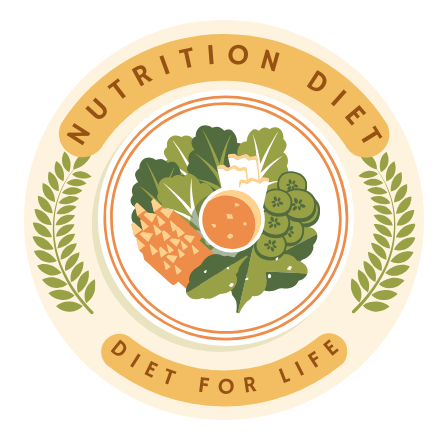Introduction
Nutritional deficiencies are a significant global public health issue, affecting millions of people, particularly in low-income and developing countries. These deficiencies occur when an individual’s diet does not provide the necessary nutrients that the body requires for optimal health. Nutrients include vitamins, minerals, proteins, fats, and carbohydrates, each of which serves essential functions in various biological processes. When these nutrients are lacking, it can lead to a range of health problems, from mild fatigue and weakness to severe developmental delays, immune dysfunction, and chronic diseases.
In many parts of the world, the impact of nutritional deficiencies is often underreported, but it continues to be a pressing concern. Although significant progress has been made in addressing these deficiencies through education, fortification, and supplementation programs, the issue remains widespread. In developed countries, poor dietary habits and food choices also contribute to nutrient deficiencies, demonstrating that the problem is not confined to impoverished regions.
This aims to explore the causes, consequences, and solutions to nutritional deficiencies. Through a deeper understanding of these factors, individuals, healthcare providers, and policymakers can work together to reduce the incidence of these deficiencies, improve public health, and ensure that populations worldwide receive the nutrition they need to thrive.
Common Nutrient Deficiencies
Nutritional deficiencies can occur due to the inadequate intake of specific nutrients, which can have a significant impact on the body’s overall health. These deficiencies vary in severity, with some leading to chronic conditions and others causing temporary disruptions in bodily functions. The most common nutrient deficiencies involve vitamins, minerals, and macronutrients like protein and fats.
Vitamin Deficiencies
- Vitamin A Deficiency: Vitamin A is critical for maintaining healthy vision, skin, immune function, and cell growth. A deficiency in vitamin A is especially common in developing countries where access to vitamin A-rich foods like animal liver, dairy products, and orange or dark green vegetables is limited. This deficiency can lead to night blindness, dry eyes, and in severe cases, complete blindness. Children are especially vulnerable, as vitamin A deficiency can stunt growth and impair immune function, increasing the risk of infections.
- Vitamin D Deficiency: Vitamin D plays a vital role in calcium absorption, bone health, and immune system functioning. Deficiency in vitamin D can lead to rickets in children and osteomalacia or osteoporosis in adults. The primary source of vitamin D is sunlight, and people who live in areas with limited sunlight, especially during the winter months, are at increased risk of deficiency. Furthermore, those with darker skin pigmentation or individuals who stay indoors for extended periods are also more susceptible to this deficiency.
- Vitamin B12 Deficiency: Vitamin B12 is essential for the production of red blood cells, the formation of DNA, and the maintenance of nerve health. A deficiency in vitamin B12 can result in fatigue, nerve damage, and cognitive dysfunction. It is primarily found in animal products like meat, eggs, and dairy, making vegetarians and vegans particularly susceptible to this deficiency. Over time, a lack of B12 can lead to irreversible neurological damage.
- Vitamin C Deficiency: Vitamin C is a water-soluble antioxidant that is crucial for collagen synthesis, wound healing, and the overall health of the immune system. A deficiency in vitamin C can result in scurvy, characterized by fatigue, swollen gums, joint pain, and bleeding. While scurvy is rare in developed countries, it still occurs in individuals who have limited access to fresh fruits and vegetables or those with poor dietary habits.
Mineral Deficiencies
- Iron Deficiency: Iron is an essential mineral for the production of hemoglobin, the protein in red blood cells that carries oxygen throughout the body. Iron deficiency is one of the most common nutritional deficiencies globally, particularly in women of childbearing age, children, and pregnant women. This deficiency can result in iron-deficiency anemia, leading to fatigue, weakness, and impaired cognitive function. Foods rich in iron include red meat, beans, and fortified cereals. However, iron absorption can be hindered by dietary factors, such as the consumption of tea or coffee, which can inhibit iron absorption.
- Calcium Deficiency: Calcium is a crucial mineral for the formation and maintenance of strong bones and teeth. A deficiency in calcium can lead to conditions like osteoporosis, which increases the risk of fractures, particularly in older adults. Women, especially postmenopausal women, are at greater risk due to a decrease in estrogen levels, which impacts calcium absorption. Dairy products, fortified plant milks, and leafy greens are the primary dietary sources of calcium.
- Iodine Deficiency: Iodine is a key element for the production of thyroid hormones, which regulate metabolism and growth. Iodine deficiency is a leading cause of preventable mental retardation in children and can result in goiter (an enlarged thyroid) and developmental delays. In many parts of the world, iodine deficiency is addressed through the iodization of salt, but it remains a concern in areas where iodized salt is not commonly used or where iodine-rich foods are scarce.
- Magnesium Deficiency: Magnesium is involved in more than 300 biochemical reactions in the body, including muscle and nerve function, energy production, and the regulation of blood pressure. A deficiency in magnesium can result in muscle cramps, fatigue, and irregular heart rhythms. Magnesium deficiency is often overlooked because it does not always present with obvious symptoms. Green leafy vegetables, nuts, seeds, and whole grains are rich sources of magnesium.
Macronutrient Deficiencies
- Protein Deficiency: Protein is a fundamental building block for tissues, enzymes, hormones, and immune function. Protein deficiency, although rare in developed countries, can occur in low-income regions where access to protein-rich foods is limited. Severe protein deficiency can lead to kwashiorkor, a condition characterized by edema (swelling), stunted growth, and weakened immunity, primarily seen in children. Protein is found in meat, fish, eggs, legumes, and nuts.
- Fat Deficiency: Fats are essential for energy storage, hormone production, and the absorption of fat-soluble vitamins. While excessive intake of unhealthy fats can lead to obesity and heart disease, a deficiency in healthy fats can impair brain function, hormone regulation, and cell structure. Omega-3 and omega-6 fatty acids, found in fatty fish, seeds, and nuts, are essential for overall health.
- Carbohydrate Deficiency: Carbohydrates are the body’s primary source of energy. A deficiency in carbohydrates can lead to fatigue, muscle weakness, and impaired brain function. While severe carbohydrate deficiency is rare, people on very low-carb diets or those with certain metabolic conditions may be at risk of insufficient carbohydrate intake.
Causes of Nutritional Deficiencies
Nutritional deficiencies arise from a variety of factors, ranging from dietary choices to medical conditions and socioeconomic factors. Understanding the underlying causes is essential for developing effective strategies to prevent and address these deficiencies.
Inadequate Diet:
The most common cause of nutritional deficiencies is an inadequate diet. A diet that lacks variety and essential nutrients—whether due to poverty, food insecurity, or poor food choices—leads to deficiencies. Processed foods that are high in sugar and low in essential nutrients contribute to these deficiencies, as do diets that rely heavily on one or two food types.
Health Conditions and Diseases:
Certain health conditions can interfere with nutrient absorption, leading to deficiencies. For instance, gastrointestinal disorders like celiac disease, Crohn’s disease, and irritable bowel syndrome (IBS) can impair nutrient absorption in the intestines. Individuals with malabsorption disorders often require special dietary modifications or supplements to meet their nutritional needs.
Age and Life Stage:
Nutritional needs vary across the lifespan. Infants, young children, pregnant women, and the elderly are particularly vulnerable to nutritional deficiencies. For example, pregnant women have increased needs for folic acid, iron, and calcium, while the elderly often face challenges in absorbing vitamins such as B12 due to changes in digestion and metabolism.
Environmental and Geographical Factors:
Environmental factors, such as climate and geographical location, can also impact nutrient intake and absorption. For example, people living in northern latitudes with limited sunlight during winter months are more likely to suffer from vitamin D deficiency. In areas where soil iodine content is low, iodine deficiency can be more prevalent.
Socioeconomic Factors:
Poverty, lack of access to nutritious foods, and limited healthcare resources are significant contributors to nutritional deficiencies, especially in low-income and developing countries. People living in food deserts, where fresh produce and healthy food options are scarce, are at greater risk for developing nutrient deficiencies.
Lifestyle Factors:
Lifestyle factors, including alcohol consumption, smoking, and sedentary behavior, can increase the risk of nutritional deficiencies. Smoking depletes vitamin C levels, while excessive alcohol consumption can interfere with the absorption and utilization of several key nutrients, including folate and thiamine.
Consequences of Nutritional Deficiencies
Nutritional deficiencies can have a significant impact on an individual’s health, and these effects can extend beyond the immediate physical symptoms to include long-term complications that affect cognitive abilities, emotional well-being, and overall quality of life. The consequences of insufficient nutrient intake are not only detrimental to the body but can also impede normal growth and development, especially in vulnerable populations such as children, pregnant women, and the elderly. Both short-term and long-term effects are observed depending on the severity and duration of the deficiency.
- Short-Term Effects: In the short term, a lack of essential nutrients can lead to a variety of symptoms that disrupt daily functioning. These effects can often be subtle but still impair one’s ability to perform everyday tasks. One of the most common short-term consequences of nutritional deficiencies is fatigue. For instance, iron deficiency, which is one of the leading causes of anemia, reduces the blood’s ability to carry oxygen, leaving individuals feeling tired, weak, and less able to exert physical effort. The lack of energy from insufficient nutrient intake can also result in irritability and mood swings, as the body struggles to maintain normal biochemical and physiological processes.
Another common short-term effect is poor concentration. Deficiencies in key nutrients such as vitamin B12 and omega-3 fatty acids can impair cognitive function, making it difficult to focus on tasks, retain information, or engage in complex thought processes. Children and adolescents, in particular, may experience difficulty with learning and academic performance when they do not receive adequate nutrition. Similarly, protein deficiency can result in muscle wasting and diminished physical strength, which can compromise an individual’s ability to perform basic movements, contributing to a sense of physical weakness.
Other short-term symptoms include dizziness and headaches, especially in cases of deficiencies in iron or vitamin B12. Iron deficiency anemia, for example, can cause dizziness due to the lack of oxygen being delivered to tissues, while inadequate B12 can lead to neurological symptoms like numbness or tingling sensations in the extremities. Furthermore, immune function can be compromised in the short term, making individuals more susceptible to infections. For example, deficiencies in zinc and vitamin C can weaken the immune response, leading to frequent illnesses or slower recovery times from injuries and infections.
- Long-Term Effects: When nutritional deficiencies persist over an extended period of time, the consequences can become far more severe, leading to chronic health conditions that may be irreversible. For example, vitamin D deficiency can result in osteoporosis, a condition characterized by brittle bones that are more prone to fractures. Inadequate calcium intake, often seen alongside low vitamin D levels, further exacerbates this condition, weakening bone density and increasing the risk of breaks and fractures, especially in older adults.
Chronic iron deficiency can also have lasting consequences. In children, long-term iron deficiency can impair physical growth and cognitive development, leading to delays in motor skills and learning difficulties. In severe cases, it can result in permanent developmental impairments. Similarly, vitamin B12 deficiency can lead to irreversible neurological damage, including memory loss, nerve damage, and cognitive decline. Early intervention is crucial to prevent long-term nerve damage, as the effects of B12 deficiency can become permanent if left untreated for too long.
Another long-term consequence is compromised cardiovascular health. A deficiency in omega-3 fatty acids, which are vital for heart and brain health, has been linked to an increased risk of heart disease and stroke. Likewise, vitamin E deficiency, which affects antioxidant activity in the body, can lead to cardiovascular complications and nerve damage over time.
Nutrient deficiencies during critical developmental periods, such as pregnancy or early childhood, can have profound impacts on the future health of individuals. For example, a lack of folic acid during pregnancy is associated with neural tube defects in infants, such as spina bifida. Long-term consequences of maternal malnutrition can also affect the child’s immune function, growth, and mental health, with lasting implications for overall well-being and development.
Impact on Children and Development:
Nutritional deficiencies during childhood can have long-lasting effects on growth and development. For example, a deficiency in iodine can impair cognitive development, leading to lower IQ levels and developmental delays. Malnutrition during the first 1,000 days of life can hinder brain development and lead to lifelong cognitive deficits.
Impact on Pregnancy and Maternal Health:
Pregnant women have increased nutritional needs to support fetal growth and development. Deficiencies in key nutrients, such as folic acid, iron, and calcium, can increase the risk of maternal complications, such as preeclampsia, anemia, and preterm birth. Fetal malnutrition can also lead to low birth weight and developmental delays.
Increased Risk of Chronic Diseases:
Chronic diseases such as heart disease, diabetes, and obesity can be exacerbated by poor nutrition. For example, a deficiency in magnesium is linked to an increased risk of cardiovascular disease, while inadequate intake of omega-3 fatty acids can contribute to the development of metabolic syndrome.
Diagnosis and Prevention of Nutritional Deficiencies
- Diagnosis: Nutritional deficiencies are diagnosed through a combination of clinical evaluation, dietary assessment, and laboratory tests. Blood tests can measure the levels of specific nutrients, such as iron, vitamin D, and B12. A thorough dietary history can also help identify gaps in nutrient intake.
- Prevention: Prevention of nutritional deficiencies can be achieved through dietary modifications, fortification programs, and supplementation. Increasing access to nutrient-dense foods, promoting breastfeeding, and educating the public about the importance of a balanced diet are key steps in preventing deficiencies.
Conclusion
Addressing nutritional deficiencies is essential for enhancing global health. Many of these deficiencies can be prevented through dietary improvements and targeted supplementation, but broader efforts are needed to tackle the root causes. Reducing food insecurity, promoting better nutrition education, and increasing access to nutrient-rich foods are key strategies in combating malnutrition. Governments, organizations, and communities must collaborate to ensure that all individuals, especially vulnerable populations, can access a balanced diet. Public health initiatives that focus on improving maternal and child nutrition, fortifying staple foods, and providing micronutrient supplements are critical in preventing long-term health issues. Additionally, raising awareness about the importance of proper nutrition and supporting sustainable agricultural practices can help create a healthier, more resilient global population. By working together across nations and sectors, we can effectively address nutritional deficiencies, enhancing well-being and fostering long-term health improvements worldwide.
SOURCES
Allen, L. H. (2003). Interventions for micronutrient deficiency control in developing countries: Past, present, and future. Journal of Nutrition, 133(11), 4019S–4027S.
Bauer, J., & Dwyer, J. T. (2019). Nutrition in the prevention and treatment of disease (4th ed.). Academic Press.
Binns, C. W., Lee, M. K., & Low, W. Y. (2018). The global burden of vitamin A deficiency: An overview. Public Health Nutrition, 21(9), 1751–1760.
Black, R. E., Victora, C. G., Walker, S. P., Bhutta, Z. A., Christian, P., & de Onis, M. (2013). Maternal and child undernutrition and overweight in low-income and middle-income countries. The Lancet, 382(9890), 427–451.
Cunningham, J., & Franks, C. (2015). Magnesium deficiency in the United States: A systematic review. Journal of the American College of Nutrition, 34(3), 224–231.
Dror, D. K., & Allen, L. H. (2011). The importance of zinc in human nutrition and health: An overview. Journal of Nutrition, 141(5), 842S–847S.
Ezzati, M., & Riboli, E. (2013). Can non-communicable diseases be prevented? Lessons from the Global Burden of Disease Study. The Lancet, 380(9859), 6–10.
Ferro-Luzzi, A., & Branca, F. (2003). Nutritional deficiency in the elderly: The importance of micronutrients. European Journal of Clinical Nutrition, 57(2), 49–58.
Galloway, R., & McGuire, J. (2005). Zinc deficiency in the world: What do we know? Nutrition Reviews, 63(4), 110–118.
Hess, S. Y., & Brown, K. H. (2009). Vitamin A deficiency and its prevention: A global perspective. Nutrition Reviews, 67(8), 445–453.
Hotz, C., & Brown, K. H. (2004). Assessment of the risk of iron deficiency in young children. American Journal of Clinical Nutrition, 80(3), 453–463.
Lynch, S. R., & Cook, J. D. (2006). Iron deficiency: The global problem. The Lancet, 368(9545), 278–284.
Maguire, M., & Gammage, M. (2016). Assessing the impact of folate and iron deficiency in developing countries. Public Health Nutrition, 19(2), 280–287.
Rogers, L., & Walker, J. (2017). Protein-energy malnutrition in the developing world: A review of current knowledge. Nutrition Reviews, 75(10), 764–779.
Semba, R. D., & Bloem, M. W. (2002). The anemia of vitamin A deficiency. Nutrition, 18(5), 349–354.
Smit, M., & Phimphachanh, V. (2017). Global micronutrient deficiency: Strategies to address the global health crisis. International Journal of Environmental Research and Public Health, 14(6), 619–634.
Solomons, N. W. (2008). Vitamin A and its role in health: A review. Journal of the American College of Nutrition, 27(1), 58–65.
Stein, A. D., & McCulloch, C. E. (2017). Micronutrient deficiencies and child health: A study of the global burden of disease. The Lancet, 387(10031), 1204–1212.
Viteri, F. E. (2011). Micronutrient deficiencies and their impact on health: The global burden. The Journal of Nutrition, 141(11), 2017S–2022S.
Zhao, Y., & Wei, L. (2019). The role of nutrition in chronic disease prevention: A review of current research and emerging trends. Global Health Action, 12(1), 58–65.
HISTORY
Current Version
November 20, 2024
Written By:
SUMMIYAH MAHMOOD




